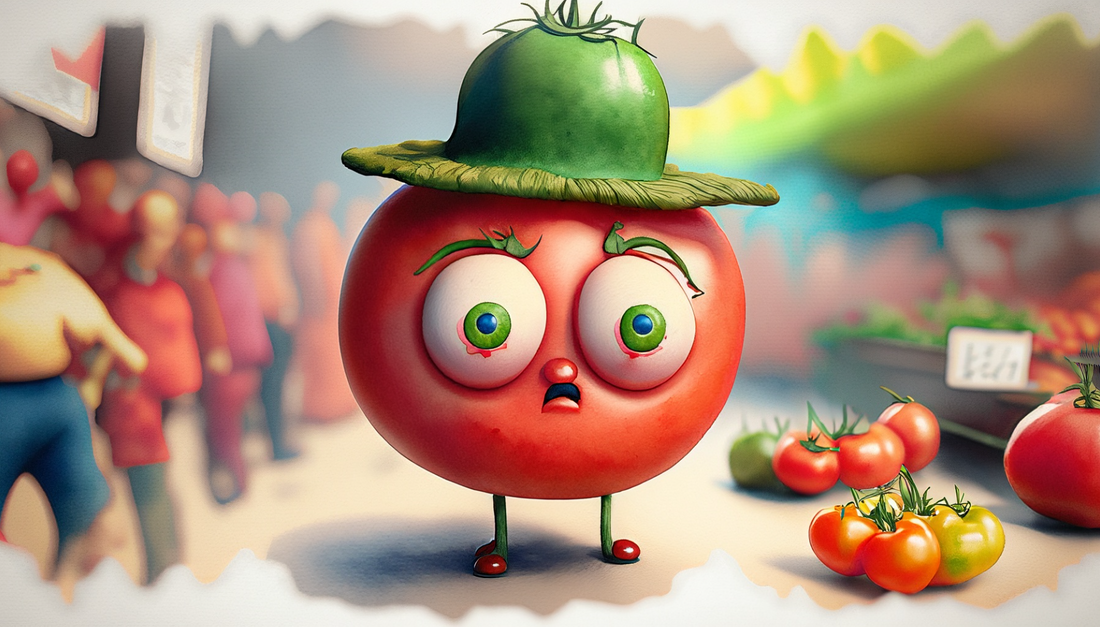Tomatoes are a staple in most of our kitchens, but have you ever thought about whether they're a fruit or vegetable? This question has perplexed and confused many for generations. Some say tomato is a fruit, while others argue that it's a vegetable. But what's the truth? Let's dive in and explore the juicy debate.

The Scientific Definition
Let's start with the scientific definition of fruit and vegetable. According to botanists, a fruit is the mature ovary of a flowering plant, usually containing seeds. In contrast, vegetables are any other edible part of a plant, such as roots, leaves, and stems.
By this definition, tomatoes are, in fact, fruits. They develop from the ovary of a tomato flower and contain seeds, just like other fruits such as apples and oranges. But why do we consider them vegetables?
The Legal Definition
The confusion arises from the legal definition of fruit and vegetable. In 1893, the United States Supreme Court classified tomatoes as vegetables for taxation purposes. At that time, vegetables were taxed while fruits were not, and tomatoes were a popular crop in the United States.
Since then, tomatoes have been considered vegetables in the culinary world. They're typically used in savory dishes and not in desserts, which is why many people think of them as vegetables.
The Cultural Perception
Beyond the scientific and legal definitions, the perception of whether tomato is a fruit or vegetable can vary by culture. In some cultures, such as Japan, tomatoes are traditionally considered a fruit and used in sweet dishes. In contrast, in the United States, they're commonly viewed as a vegetable.
The Health Benefits
Regardless of whether you consider it a fruit or vegetable, tomatoes are packed with health benefits. They're low in calories and high in vitamin C and lycopene, a powerful antioxidant. Eating tomatoes regularly can improve heart health, reduce the risk of cancer, and even boost mood.
So, What's the Conclusion?
In conclusion, while the scientific definition states that tomato is a fruit, the legal definition and cultural perception label it as a vegetable. However, the truth is that it doesn't really matter. Whether you call it a fruit or vegetable, it's still delicious and nutritious.

Next time you're shopping for tomatoes, try out these fresh tomatoes or these pre-packed cherry tomatoes. They're perfect for salads, sauces, and any other dish you can think of.
FAQs
- Is tomato a fruit or vegetable?
- Tomato is scientifically classified as a fruit but is considered a vegetable in the culinary world and for legal purposes.
- What are the health benefits of eating tomatoes?
- Tomatoes are low in calories and high in vitamin C and lycopene, which can improve heart health, reduce the risk of cancer, and boost mood.
- Are tomatoes used in sweet dishes?
- In some cultures, such as Japan, tomatoes are traditionally used in sweet dishes.
- How can I incorporate tomatoes into my diet?
- Tomatoes are versatile and can be used in salads, sauces, sandwiches, and more.


